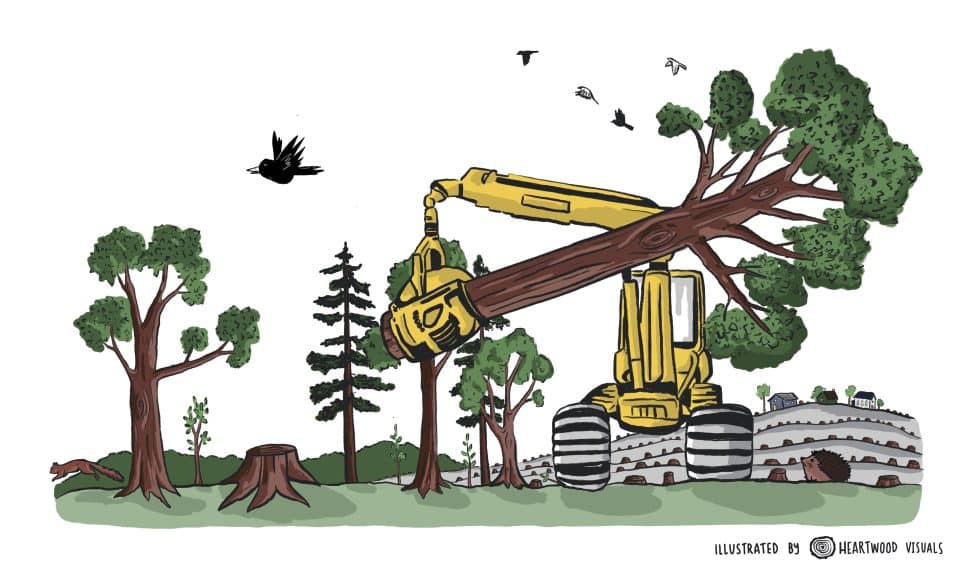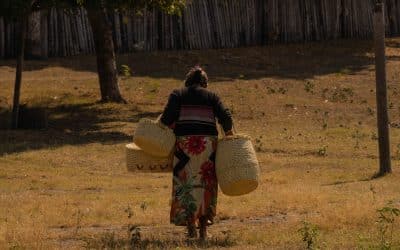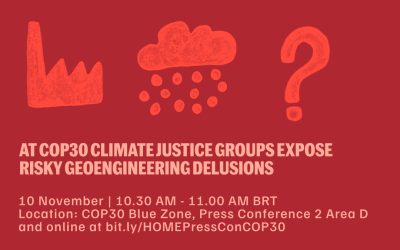4X Pledge at Leaders Summit Ahead of COP30, Issues Open Letter to Parties
by | Nov 7, 2025 | Biomass, Media Release
BELÉM, BRAZIL – [7th November 2025] – Relying on a four times expansion of liquid and gaseous biofuels set out in the Belem 4X Pledge on Sustainable Fuels, together with expanding large-scale stationary power generation from woody biomass as an alleged climate solution, carries profound risks and will exacerbate the climate crisis, harm biodiversity, and threaten human rights, warns the Biomass Action Network (BAN) today in an open letter to Parties as the bioeconomy and dangerous bioenergy gain traction in the lead-up to the COP30 in Belém.
As Brazil presents its Tropical Forests Forever Facility to the COP30 Leaders Summit as a solution to save forests, it goes on to seek endorsements for its biofuels agenda that does the opposite by provoking increased demand that intensifies pressure on natural forests, driving deforestation, forest degradation, and the conversion of diverse ecosystems and agricultural land into monoculture plantations.
Most bioenergy approaches risk harming the climate more than mitigating climate change, releasing forest carbon stocks to the atmosphere with huge emissions that increase CO2 and worsen global warming over the critical period to 2100. Burning wood for energy emits carbon faster than trees can regrow to sequester it, a fact that spurious declarations of carbon neutrality ignore.
“Promoting liquid and gaseous fuels derived from wood in the Belem 4X Pledge, together with continued expansion of solid woody biomass use as renewable energy is a dangerous distraction,” said Peg Putt, Coordinator of Policy and Campaigns at BAN. “The combustion of wood for bioenergy releases massive amounts of stored greenhouse gases immediately, and the myth of its carbon neutrality is based on flawed accounting that ignores the decades forests need to regrow, if they ever do. The true carbon cost rarely appears on any national balance sheet.”
“Logging for bioenergy does the opposite of what science demands. It degrades our best natural defense against climate change,” said Davi Martins, International Advocacy Campaigner at BAN. “At a time when rights-based protection and ecological restoration are proven to enhance forest health and resilience, we are heading in the wrong direction.”
It is imperative that delegations are aware of the challenges of the bioenergy agenda. The current industrialised use of woody biomass for energy is already too much, exhibiting serious adverse social and environmental impacts in North America, Europe, Asia, and Latin America.
Therefore, the Biomass Action Network requests in its letter that Parties:
- Reject bioenergy derived from woody biomass as a climate solution – both for stationary energy generation and for gaseous and liquid biofuels – excluding it from international and national targets.
- Rule out future use of woody biomass with carbon capture, since it will not provide real negative emissions.
- End subsidies for production and consumption of woody biomass energy
- Prioritize forest protection as a mitigation measure, and promote halting and reversing deforestation and forest degradation by 2030 through robust, harmonised transparency practices and consistent standards.
- Ensure the COP truly focuses on all aspects of a just transition to genuinely low-carbon renewable energy, including addressing the impacts of bioenergy on those reliant on forests, and throughout the supply chain.
- Reform flawed carbon accounting in relation to biomass combustion so that smokestack emissions appear in energy sector accounts of the consuming country as does the combustion of fossil fuels, and reform land sector accounting to explicitly show carbon stock quality and changes rather than netting them out.
- Recognise that co-firing woody biomass with coal is not abatement.
Media Contacts:
Peg Putt (Eastern Australian time zone)
Coordinator – Policy and Campaigns, Biomass Action Network
peg.putt@gmail.com
Davi Martins (Brazilian time zone)
International Advocacy Campaigner, Biomass Action Network
davi@environmentalpaper.org




